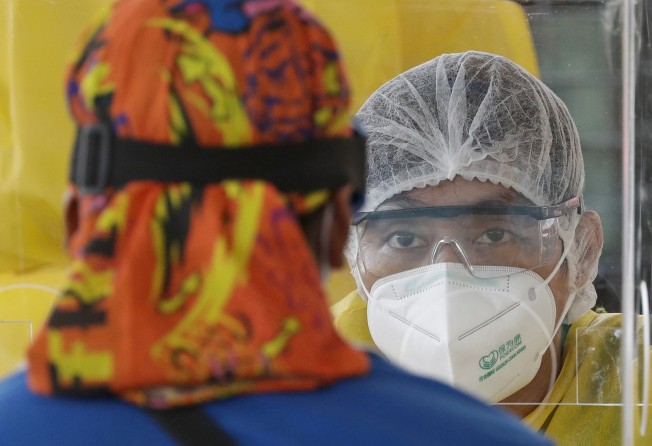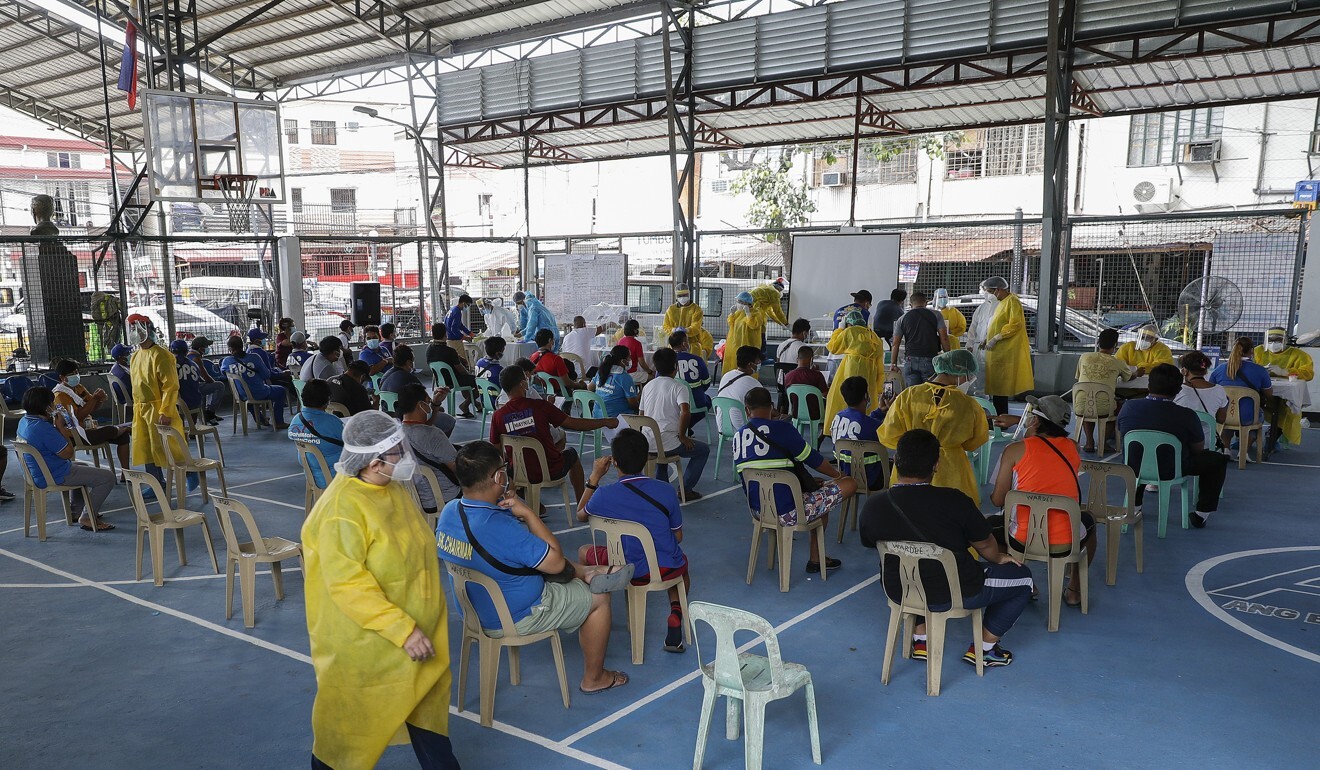Coronavirus: Philippines exposed after plans to expand health insurance derailed by pandemic
- Spending has been refocused on virus response, and the recent suspension of increased contributions from Filipino workers abroad could further drain funds
- The share of out-of-pocket expenditure to total health spending in the Philippines, at 54 per cent, is the highest among Southeast Asia’s five largest economies

After decades of underinvestment in medical care, the Philippines finally was moving to expand health insurance for its citizens. Then coronavirus happened.
Now, state-owned Philippine Health Insurance, known as PhilHealth, might not meet targets set for expanded coverage, president and CEO Ricardo Morales said. Spending has been refocused on virus response, and the recent suspension of increased contributions from Filipino workers abroad could further drain funds, he said.
“The move now is to review, start from the ground up,” Morales said in a May 7 phone interview.
The share of out-of-pocket expenditure to total health spending in the Philippines, at 54 per cent, is the highest among Southeast Asia’s five largest economies, contrasting with 37 per cent in Indonesia and 12 per cent in Thailand, according to the World Bank. The PhilHealth chief said the agency shoulders 15-17 per cent of the country’s total annual health care costs, with the rest settled by patients and private insurers.
“For a low- to middle-income country like the Philippines, 50 per cent would be a commendable target. But you see we’re still a long way off,” Morales said. “That’s why we have to spend more, we have to invest more into health care.”
A Filipino who’s hospitalised might have to pawn property or take out loans to pay medical bills, which can push the patient’s family into poverty. A law signed last year by President Rodrigo Duterte insured all Filipinos, with the goal of having PhilHealth shoulder at least 50 per cent of total medical expenses by 2022.
Even before the coronavirus struck, PhilHealth expected a net loss this year, Morales said. The universal health care law will raise the insurer’s monthly payouts from 10 billion pesos (US$198 million) to about 15 billion pesos, he said.
“We would be good for a year from now,” Morales said. “But after that, our funds would really be strained.”

Funding sources for the universal health care programme also are under pressure. Excise taxes on alcohol and cigarettes, which are used to subsidise health care costs, are expected to go down, and a global wave of job losses and pay cuts threatens collections from Filipino workers at home and abroad.
The state insurer suspended higher contributions from Filipinos abroad after a public outcry, Morales said. Only 360,000 of an estimated 10 million overseas Filipino workers paid state health premiums last year.
PhilHealth also is seeking a bigger budget from the government.
“Health care is what governments ultimately are supposed to do,” Morales said. Other expenditures, for example in infrastructure or education, “pale in comparison in priority”.